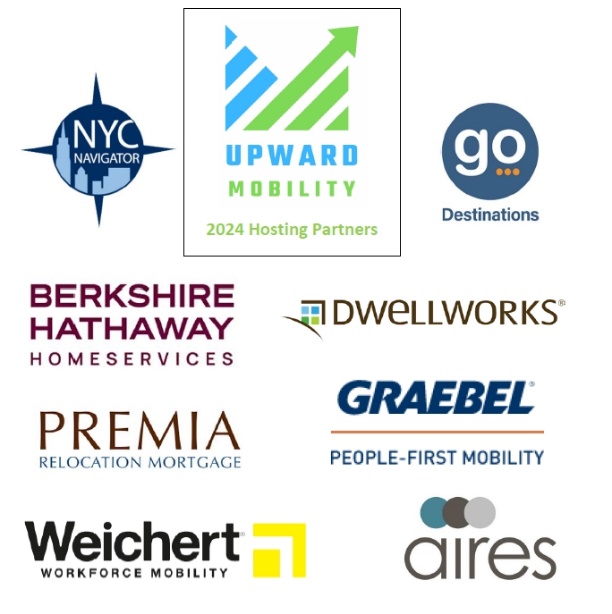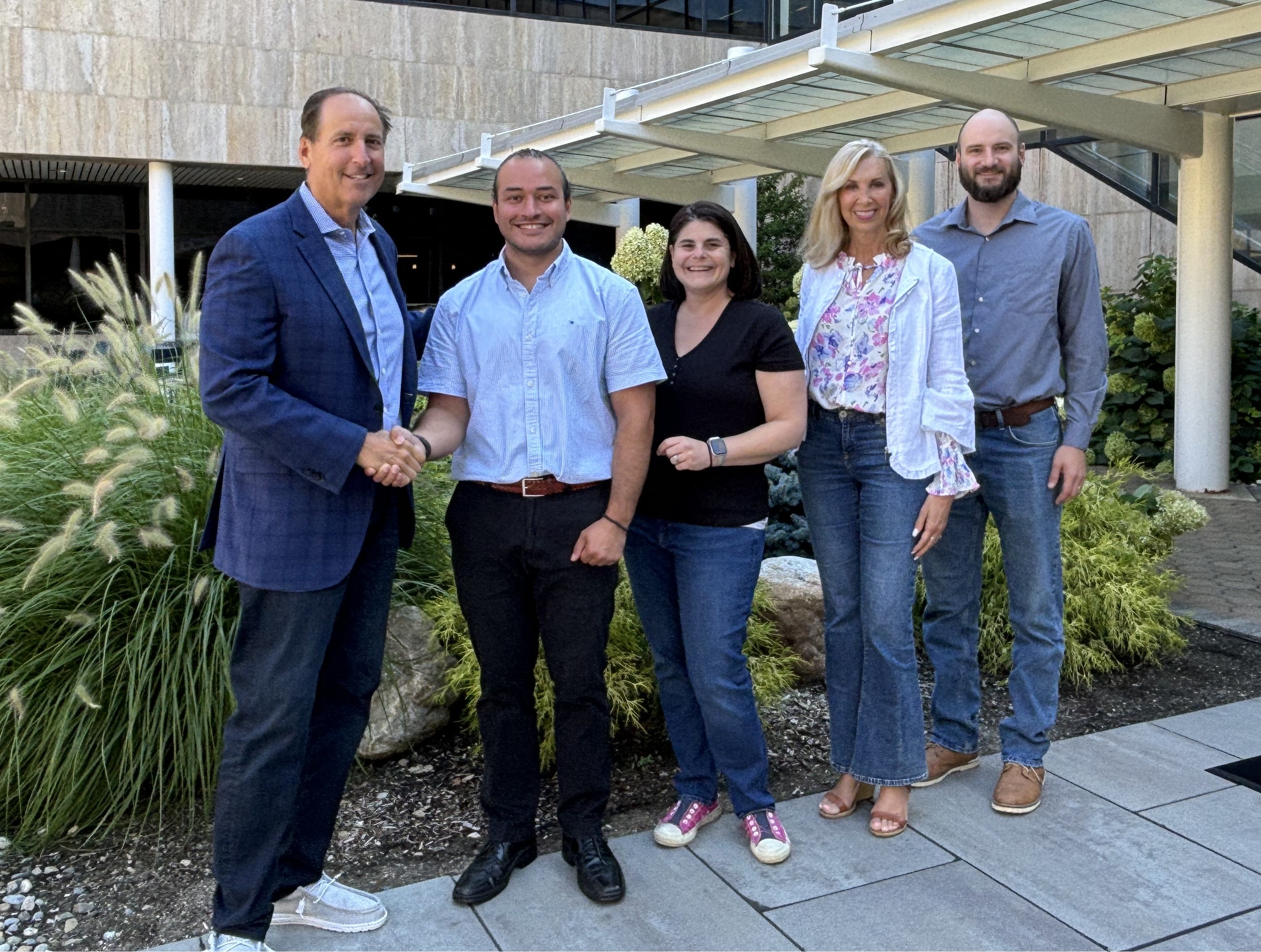As the global mobility industry continues to evolve, so, too, does the Upward Mobility program, an initiative dedicated to increasing diversity and opportunity within the field. Since its launch, the program has been instrumental in introducing students from underserved backgrounds to the world of mobility through internships, mentorship, and tailored professional development. In 2023, we explored the program’s impact and the vision that Andrew Walker, former WERC Board chair and co-chair of the Upward Mobility program, had for its future.
Now, a year later, Walker returns to share insights on the latest developments, successes, and challenges faced by the Upward Mobility program. From new training opportunities to expanding industry partnerships, the program continues to make strides in its mission to nurture the next generation of mobility professionals. In this Q&A, Walker discusses how the program has evolved, key metrics of success, and his vision for the year ahead, providing a glimpse into the powerful influence Upward Mobility is having on both its participants and the industry at large.
Since our last conversation, what changes have been introduced in the Upward Mobility program?
Walker: We have built upon our mobility-specific training opportunities and now include a LinkedIn master class that helps the students build their personal brand and networks, as well as a session with a corporate recruiter who advises the interns on how to best present themselves on their resumes and in interviews.
How many interns were placed this year, and with how many companies?
Walker: We placed nine interns with eight companies. Newcomers to the program this year included Berkshire Hathaway HomeServices, NYC Navigator, and Premia Relocation Mortgage.

Can you highlight any specific successes or challenges the program has faced this year?
Walker: We had really engaged students who were happy to participate in the activities offered outside of the internships themselves. Two interns participated on a panel hosted by the Northeast Ohio Relocation Roundtable (NEORR), and three were able to attend Elevate+ networking workshops held in Cleveland and Summit, New Jersey. Each intern received a mobility stipend from the Foundation for Workforce Mobility.
One of last year’s interns, Charlyse Young, is still working for Cartus and presented on several Upward Mobility sessions, including a mentor training call and a Love+Relo show about UM. I learned last week that Equus Software has hired as an employee the intern that hosted last summer.
For challenges: Our industry is having a hard time lately, and several organizations were unable to find the budget to support an intern this summer. We’ve yet to reach our goal of placing 25 students into the program during a summer. (We have, however, surpassed that number over three years.)
What key metrics or benchmarks have you been tracking to measure the program’s success this year? Have there been any significant improvements or areas of concern?
Walker: We have two primary measures: size of internship program and number of interns converted to employees after they finish their studies. We’ve not yet reached our annual goal of 25 placements in a summer, but we’re hoping this becomes achievable as more organizations learn about UM and budget for interns’ wages. We have now seen two program alum hired by their hosts, which is a great result that we sincerely hope to increase as more of the interns come out of school.
How has participant feedback influenced the program’s evolution?
Walker: We incorporated a mentor training session to better prepare and level-set the expectations of mentors in the program. We updated our Job Readiness class to be much more dynamic and interactive. We’ve increased the opportunities for the interns to network with each other.
Have there been any new partnerships or collaborations that have enhanced the program’s reach or effectiveness?
Walker: The Steering Committee has been instrumental in keeping the program fresh and relevant, and I am indebted to each member for their contributions. I am also grateful to Chris Pardo at Plus Relocation for designing and leading the Relo 101 class for three years in a row. Lisa Johnson from Cartus, a member of the Steering Committee and the UM curriculum lead, has run a great class for three years about mobility’s relevance in the world, this year focusing on DEI and sustainability among areas where we have an impact. Anthony Gonzalez, also a Steering Committee member, introduced the LinkedIn masterclass for us. And Ashley Scandariato, a recruiter at FM, lead the Interview and Resume Tips and Wow Factors session. She works closely with Steering Committee member Suzie Chapman, the mobility leader at FM.
How has the industry’s response to the Upward Mobility program evolved since its inception?
Walker: I haven’t perceived an evolution; I just have a greater awareness and greater willingness to get involved. It’s all very positive.
What is your vision for the Upward Mobility program for next year?
Walker: We’re already starting to recruit hosts for 2025. Maybe our theme should be “25 in 25!”, as we really do want to hit the 25 interns goal. Although Equus didn’t participate this summer, they have already committed to filling two internship roles next year. I have been having exploratory conversations with several other companies that are hoping to join us next year, so I am optimistic that the program will continue to grow.
For companies or individuals considering involvement in the Upward Mobility program, what message would you like to convey?
Walker: Upward Mobility, as the diversity internship program for our industry, is a great way of exposing students to the exciting world of global mobility so many will enter our field by design instead of accident (the normal way people find jobs in mobility). More so, UM is a great way to provide access to underserved students to increasingly important professional development while earning a very respectable hourly wage. It also serves as a recruiting pipeline for new talent and increases the diversity of our ranks.
What has been the most rewarding aspect of leading the Upward Mobility program this past year?
Walker: We have had amazing feedback from the participants about their experiences and raised some legitimate excitement about working in our field. I’ve loved getting to know each intern, but this year's programming afforded me to get to know several of them much better than in the past, and they each impress me to no end.
Intern Perspectives
“I’ve had an incredible experience working with Aires and engaging with everyone in the Upward Mobility program. Building connections with such a talented group has been truly inspiring. This opportunity has not only deepened my career aspirations but also taught me how to enhance my LinkedIn profile to be both professional and compelling. The people at Aires have been amazing, and I genuinely felt like part of the Aires family. Their support and guidance have been invaluable, helping me improve many of my skills. I will truly miss working with this fantastic team.” —Keyandra Hunter
“I had a great time working for Berkshire Hathaway HomeServices Professional Realty this summer. It was a very interesting time to join the mobility/relocation industry due to the new NAR settlement just coming out and seeing how all the different parts of the business and competitors had to react. My mentor, Michelle Solly, was great and gave me a lot of details about the inner workings of the industry all while being very friendly and helpful.” —Alan Ly

“I am grateful for my experience as a business analyst at Weichert Workforce Mobility where I was able to apply my environmental knowledge to research and develop a plan for Weichert to reduce greenhouse gas (GHG) emissions and become carbon neutral by 2050, advising management as key stakeholders, and preparing data for inclusion in the company’s Corporate Social Responsibility (CSR) report. This opportunity has motivated me to pursue a career as a sustainability specialist and work with corporations to reduce their environmental impacts.” —Brandon Anaya, pictured above with Weichert colleagues.